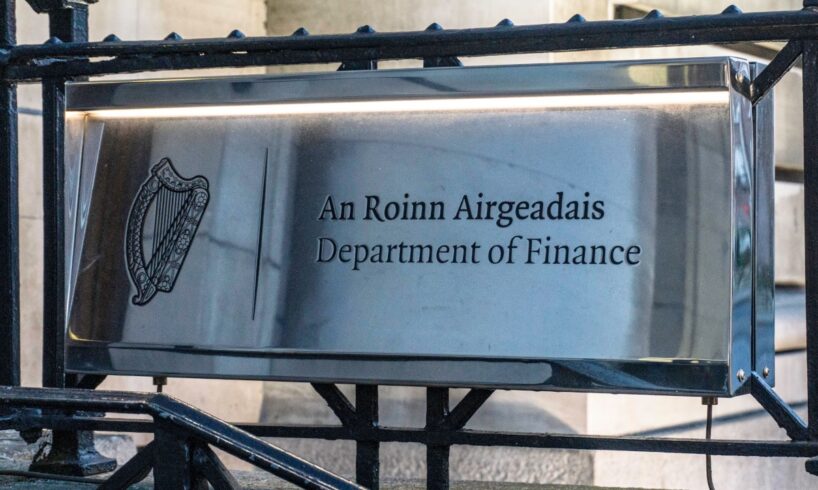
Ministers Donohoe and Chambers presented Budget 2026 to the Irish Dail today. We take a first look at the implications for Irish tech and science companies and start-ups.
Minister for Finance Paschal Donohoe and Minister for Public Expenditure and Reform Jack Chambers set out the details for Budget 2026 today. As had been well-flagged in advance, it was a relatively conservative budget given the amount of economic uncertainty, but there were some good news stories for the innovation sector.
The sector will be watching closely in coming days and weeks as to the true implications of some of the measures announced in today’s Budget, but many of the industry bodies are already out with their reactions.
Start-up representative group Scale Ireland were among those welcoming some of the more pro-innovation initiatives in the Budget, saying it “strongly welcomes the 5pc rate increase in the R&D tax credit, and an increase to €87,500 in the amount reimbursed in the first year under the scheme”.
It also welcomed the increased allocation to Enterprise Ireland to support Irish businesses in scaling, innovation and accessing global markets – although we all await the details of this – as well as the extension to 2028 of the Key Employment Engagement Programme.
“This is a pro-innovation budget with the increase in the R&D tax credit providing a strong boost to indigenous tech companies at a time of great geopolitical uncertainty and will incentivise increased R&D activity and spending in out sector,” said Martina Fitzgerald, Scale Ireland CEO.
The body’s chair Brian Caufield meanwhile welcomed other changes: “The increase in the revised Entrepreneurial Relief Lifetime Limit is very welcome and will go some way to encouraging entrepreneurship.”
The Irish Venture Capital and Private Equity Association (IVCA) were also quick out of the blocks in welcoming Budget 2026 and in particular the proposed changes to the R&D tax credit, as well as the increase in funding for Enterprise Ireland and the planned development of an “R&D Compass”. They also welcomed revisions to stamp duty for listed companies.
“By making it easier and more attractive for businesses of all sizes to invest in R&D, the Government is ensuring that Ireland remains at the forefront of global innovation and continues to attract world-class talent and ideas,” said Caroline Gaynor, IVCA chair. “This focus on investment signals the Government’s continued commitment to fostering entrepreneurship, encouraging investment and backing scaling Irish companies.”
“The changes to the R&D tax credit in particular are forward-looking, encouraging more companies to take bold steps in research and development, while the measures to encourage private investment will help ensure that our economy continues to thrive in a rapidly evolving global marketplace,” said Sarah-Jane Larkin, the director general of IVCA.
Business representative group Ibec too said they welcomed Budget 2026’s “focus on driving innovation, protecting and creating jobs, and increasing investment in critical infrastructure”, and praised the changes to the R&D tax credits.
The expansion of the Research and Development (R&D) tax credit to 35pc, up from 30pc, and the widening of the scope of qualifying research, it said are “crucial measures for fostering high-value job creation among both Irish and international firms”.
“This Budget strikes an important balance between prudence and ambition,” said Fergal O’Brien, executive director of lobbying and influence at Ibec. “It seeks to improve economy-wide competitiveness while also providing targeted measures to support the firms most directly impacted. This has been achieved by keeping day-to-day spending under control while investing ambitiously in infrastructure, skills, and innovation to drive productivity and protect and create jobs, which will deliver the greatest benefit for society.”
Ibec welcomed the 9pc VAT rate and changes to corporate tax for apartment construction as a welcome step forward, while they cautioned it was not “panacea for addressing housing shortages”, something that many businesses have expressed concern around, as their employees struggle to find affordable housing.
It was a sentiment echoed by Mary Connaughton, Strategic Engagement Director at HR professional body CIPD: “Skill shortages are very real in the Irish labour market, and additional expert skilled workers are required, however access to housing has made recruitment more difficult. Sufficient housing in our towns and cities is key to enabling Ireland to attract and retain talent and we welcome measures to boost the supply of apartments as well as the extension of the rent tax credit.”
Digital Business Ireland welcomed the confirmation in Budget 2026 of the establishment of a National AI office and the allocation of €1.4m for that purpose “and the promise from the Government to promote and leverage the use of AI in Irish companies”.
So just a first look at the reactions from the representative organisations in the science and technology sectors and beyond, but the team here will be monitoring further reaction to Budget 2026 as we get more details in coming days and weeks.
Don’t miss out on the knowledge you need to succeed. Sign up for the Daily Brief, Silicon Republic’s digest of need-to-know sci-tech news.





